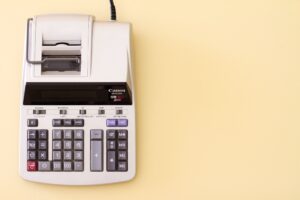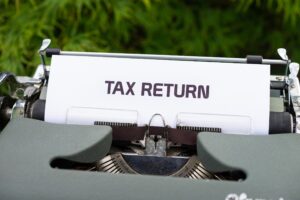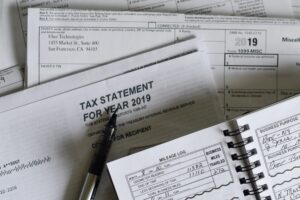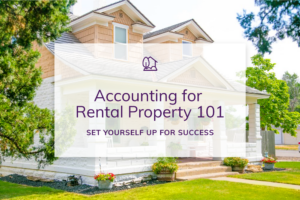Resources

Say Goodbye to Rental Income Worksheets
Rental income worksheets in Google Sheets, Microsoft Excel, and Numbers are popular for new landlords. Templates for tracking rental income and expenses make setup faster

QuickBooks for Landlords: More Hassle Than It’s Worth?
Twenty-nine million businesses in the US use QuickBooks, making it one of the top accounting tools for small businesses. But is QuickBooks good for landlords? Although

Are Accounting Fees Tax Deductible?
When starting your investment journey, you’ve probably wondered at one time or another, “Are accounting fees tax deductible?” They are! When filing taxes, rental property

What Is a Rent Roll? (and Why Every Landlord Needs One)
Managing rental properties comes with a long list of responsibilities, from tenant relationships to maintenance issues. With all those tasks, staying on top of property

Real Estate Accounting: Your Comprehensive Guide for 2025
Real estate accounting might not be the most exciting part of owning rental property, but it’s a key component of running a successful business. Accurate,

Sole Proprietorship Accounting for Real Estate Investors
When starting out in real estate investing and accounting, one can create many business structures. At REI Hub, the most common setup is single ownership,

Best Real Estate Accounting Software in 2024
Real estate accounting software is a key tool for effectively running a rental property business. But many bookkeeping platforms are available, and we know you

Mastering the Art of Luxury Property Investments
Investing in luxury real estate means more than just buying an expensive or large property. When you purchase high-end real estate, you focus on catering

Best Cities For Property Investment in 2024
Looking for new rental property locations can be fun and exciting, but with so many options, it can become overwhelming. How do you know where

Property Investment for Beginners: A Comprehensive Guide
Checking out this property investment for beginners is an exciting first step in your real estate journey! Of course, real estate investment is a tried-and-true

7 Common Bookkeeping Errors for Short-Term Rentals
Short-term rental demand has skyrocketed in recent years. In 2023, the short-term rental market in the US reached $64 billion, according to AirDNA. Are you one

Property Valuation: Tips for Buying an Investment Property
A property valuation is the estimated value of a property’s worth at a particular moment. Investors then use the estimate for legal, financial, or transactional

1031 Exchange Timeline: Comprehensive Guide
A 1031 exchange is a powerful tax-planning tool for rental property owners—as long as investors follow the rules and timeline set by the IRS. However,

LLC, S Corp, or C Corp: Which Entity Is Best for Your Rental Property Business?
When you’re starting a rental property business, one of the key decisions you’ll make is how to structure your business. Today, we’ll discuss the pros and cons of LLCs, S corps, and C corps and how they may affect your rental property business.

6 Tips to Protect Your Rental Property Business This Summer
In the US, the peak moving season for renters is between mid-May and mid-September. Today, we’ll look at six common issues investment property owners face during the peak rental season.

Asset Class Life and Recovery Period Reference Sheet
Before rental property owners can calculate their depreciation for the year, they must determine an asset’s class life and recovery period, which are set by the IRS. We’ve put together a table showing common rental property assets and improvements along with their expected lifespans and recovery periods for you to use as a quick-reference guide!

Hiring a Bookkeeper for Your Rental Property Business
You’ve decided it is time to get a bookkeeper for your rental property business – but do you know where to start? It can be a lot to think about, so we’ve put together a guide to hiring bookkeepers for rental property owners.

8 Signs Your Rental Property Business Needs a Bookkeeper
When you have a small portfolio of rental properties, hiring a bookkeeper may seem like an extravagance. But there are situations when outsourcing your accounting work benefits your business—no matter how many properties you have!

Learn from This Year’s Tax Return to Make Filing Better Next Year
Did you struggle with your tax prep this year? Tax time isn’t pleasant for anyone—especially real estate investors who have extra forms to submit. We’ll show you how to use tax-time pain points to improve your rental property business and simplify tax filing next year.

Self-Employment Tax and Rental Property Owners
You own rental property- but does that mean you are self-employed? Today, we’re tackling several key questions about self-employment tax, who it applies to, and what you need to know!

Exploring Seasonal Rental Income: Put Your Vacation Home to Work
Vacation homes make fantastic seasonal rentals, and the IRS even offers tax breaks to property owners who meet certain requirements. Let’s talk about seasonal rentals, the pros and cons of short-term rentals, and the tax implications that come from renting out your vacation home.

Calculating Basis & Depreciation for Personal Properties Put into Service
No matter why you put your personal property into service as a rental or for business use, you need to know its basis to be able to claim depreciation deductions. Today, we’ll cover the basics of basis, depreciation, and their calculations for three types of personal property in service.

Calculating Your Home Office Deduction
The home office deduction can be complicated, and questions are understandable. What can you include in the deduction? How do you calculate it? Where do you report it? Today we’ll cover the dos and don’ts of the home office deduction so you’ll be ready to file in time for tax day.

Can Rental Property Businesses Take a Home Office Deduction?
Whether or not you can take a home office deduction for your rental property is not an easy question! To help you navigate this gray area, we’ve put together a review of the home office deduction and the questions surrounding it. Why is there a debate? Who qualifies for the deduction? Is taking the deduction worth it? We’ll cover all those and more.

Pros and Cons of Starting a Property Management Company for Your Rental Properties
Have you thought about setting up a property management company? It may sound like an easy way to make money and realize tax benefits, but it may be more complex than you think. Before you jump in, consider these pros and cons of starting your own property management company.

Reporting Rental Income: IRS Red Flags for Property Owners
Calculating revenue is a hot topic for rental property owners, particularly since reporting too little or too much income comes with significant consequences. In this article, we’ll discuss the basics of reporting rental income, ways the IRS can learn about unreported revenue, and the potential results of incorrectly reporting your rental income.

Rental Losses: Deductions, Suspensions, and Exemptions
Rental losses are common in the real estate investment industry, but many investors aren’t sure how to handle them when tax time arrives. To clear up this confusion, today we’re answering the top five questions related to real estate losses.

Small-Scale Property Managers: Right for Your Rental?
As a real estate investor, you may wonder if hiring a property manager is right for you and your rental business. Each situation is unique, so let’s discuss what property managers do, types of property managers, and the pros, cons, and fees associated with management companies.

Auditing Schedule E Income and Expense Categories
Today we are examining the Schedule E’s income and expense categories. When it’s time for you to complete your Schedule E, you’ll be confident that your reportable income is accurate and your deductible expenses are properly categorized.

Quick and Dirty Tax Prep for Last-Minute Filers
If you’ve put off working on your tax return, don’t panic. REI Hub is here to help. Use our checklist for last-minute filers to tackle your tax prep essentials.

Beyond Deductions: A Comprehensive Tax-Time Review
Getting your tax return ready for your rental property business can be overwhelming and stressful. We can help you fight that tax-related anxiety, though. REI Hub’s comprehensive five-part review will help you get ready for tax time.

Signs Your Books Aren’t Ready for Tax Time
Rushing through your tax prep for the year comes with risks, so we’ve put together a checklist of accounting red flags. If your records have any of these issues, your books may not be ready for tax time.

How to Create a Budget for Your Rental Property
Knowing how to budget and plan for costs will save you money and stress in the long run. So, we’ve created an eight-step process to help you create, maintain, and use a budget effectively for your rental property business.

Preparing Your Rental Unit for Winter: Tips for Protecting Your Investments and Tenants
Winter presents unique challenges and risks for rental property. Use our checklist and tips to get your rentals—and tenants—ready before winter settles in.

Year-End Financial Planning For Rental Property Owners
The end of the year is a hectic time for everyone—including rental property owners. We’ve put together an outline to help you review your books—and business—so you can finish this year confidently.

Long- or Short-Term Rentals: Which Investment Strategy Is Right for You?
Let’s compare and contrast aspects of long- and short-term rentals so you can choose the investment strategy that works for you!

7 Myths about LLCs for Rental Properties
An LLC is a great option for many landlords—but maybe not for the reasons you’re thinking. Let’s look at these misconceptions to uncover what the true purpose of an LLC really is.

Accounting Workflows: Streamline Your Bookkeeping Process to Protect Your Business
As a rental property owner, you wear many hats, and all too often admin work like bookkeeping gets pushed aside, forgotten, or ignored. We’ve categorized key bookkeeping tasks by frequency so you can customize a workflow and run a better business without getting behind!

9 Kinds of Business Taxes: Which Apply to Your Rental Properties?
All businesses must pay taxes to federal, state, and local authorities – but there are dozens of kinds of taxes. Do you know which taxes your rental property business is required to file and pay?

How Much Do I Need for My Rental Property’s Cash Reserve?
You know you need a cash reserve for your rental properties, but how much should you save? Today, we’ll discuss the six most important factors and strategies to consider when setting a savings goal for your property’s cash reserve.

Do I Need a Cash Reserve for My Rental Property?
Owning rental property comes with a certain amount of risk, and maintaining a cash reserve is the best way to ameliorate that risk. Today we’re covering the basics of cash reserves and savings tips that you can start using immediately.

Journal Entry for Selling Rental Property
When you sell an investment property, you need to create a journal entry to record the transaction. There are many factors to consider, but we’ve provided a sample situation and journal entry as a reference point.

7 KPIs for Purchasing Rental Properties
When you’re looking to invest in real estate, you need to know more about a property than its purchase price and potential rent. Key performance indicators (KPIs) help real estate investors evaluate potential properties for purchase, reduce risk, and maximize profits.

KPIs for Rental Property Owners
Key performance indicators (KPIs) help rental property owners evaluate their properties and increase their revenue and profitability. We’ve put together a list of the seven most important KPIs to help you measure, monitor, and manage your rental properties effectively.

Do You Need Property Management Software?
We’ve all seen the advertisements for property management software, promising to put your real estate investments on autopilot. But does it live up to the hype, and how can you get the most out of it?

How to Handle Expenses for Out-of-Town Travel Related to Your Rental Property Business
Have you ever had to travel out of town for your rental property business and wondered what the IRS does or does not consider deductible? Read on to learn more!

Who Counts as a Real Estate Professional?
Let’s review the benefits of being a real estate professional, the criteria for becoming one, and best practices for proving your professional status to the IRS.

Why Rental Properties Mostly Use Cash-Basis Accounting
Most landlords use cash basis accounting, but do you know why? Let’s review the basics, the tax benefits, and some best practices.

Top Five Errors in Rental Property Bookkeeping
There is a lot to keep track of when managing and keeping the books for a rental property investment. Check out our list of the top five bookkeeping errors we commonly see to make sure that you don’t make the same mistakes!

Spring Cleaning: What Rental Property Documents to Keep, What to Toss, and When
If you are as diligent as you should be about storing key records and documents, you may find yourself swimming in paper or electronic files and wondering: how long do I need to keep this stuff?? Read on for the answer!

Bookkeeping for an Insurance Claim
Having an insurance policy for your rental property helps offset the costs to repair damage from accidents, vandalism, or natural disasters. But once the insurance company has processed your claim, how do you account for the insurance payment?

2025 Tax Form and Filing Deadline Overview
We all think of April 15th as Tax Day – but did you know that there are different filing deadlines for different tax forms? Read on to learn more!

Information Needed to File Taxes for Rental Property Investments
Keeping accurate financial records is important all year long, but as tax season approaches, many real estate investors start thinking about one question: What information do you need to file taxes for rental property investments?

How to Get 2025 Started Right with Your Rental Property Accounting
The beginning of a new year isn’t just tax time, its also an opportunity to review your accounting processes and make adjustments to get the new year started off right!

Double-Entry Accounting: What Is It and Why Does It Matter for Rental Property Accounting?
Double-entry accounting may sound more difficult at first- but it is the standard for a reason! Read on to learn more about how double-entry accounting can minimize errors, eliminate the need for duplicate transactions, and increase the chances that your rental property books balance!

Cash Flow Statements for Rental Properties
If cash is king – then you better be familiar with a cash flow statement! Let’s discuss what a cash flow statement is, how it differs from a balance sheet and income statement, and how to read it correctly.

Accounting for House Flips
Whether you’re interested in flipping one property or starting a business dedicated to house flipping, it’s important to have a good accounting system in place!

Accounting for House Hacking
House hacking is a popular way to get started in real estate investing – and for good reason! But since house hacking inherently blends personal and rental costs, there are some implications for your accounting that you should be aware of, especially at tax time.

Rental Property Asset Depreciation
Every rental property investor takes depreciation deductions on their taxes every year, but not every investor knows exactly what that means or where those numbers are coming from. Read on for a primer on rental property depreciation!

Real Estate Investing Accounting Glossary
We’ve compiled a glossary of the most common accounting terms associated with rental properties – check it out now!

What Costs Are Deductible Prior to Purchasing My Rental Property?
Learn more about proper accounting for start-up costs for your rental property business.

Are the repairs at your rental property an Expense or a Capital Improvement?
Are the repairs at your rental property an Expense or a Fixed Asset?

How to create a property purchase journal entry from your closing statement
How to translate the line items from your closing statement into a proper journal recording the purchase of your property

Leveraging Mileage Deductions in Your Rental Business
Can you claim mileage for your local travel related to your rental property business?

The balance sheet for rental properties
How to create and understand your balance sheet as a real estate investor

Security Deposit Accounting FAQs
Answers to the most common questions on the do’s and don’ts of accounting for security deposits

Understanding the Schedule E for Rental Properties
Most real estate investors report the net income or loss from their rental properties using this form.

The advantages and disadvantages to owning rental property in an LLC
Wondering if you should create an LLC to hold your rentals in? Read on to see what you can gain and what you need to consider.

Proper Accounting for Mortgage Payments
Mortgage payments aren’t exactly an expense- they are a loan repayment, interest expense, and escrow transfer, all at once.

How do I set up the Chart of Accounts for my rental property business?
Your chart of accounts doesn’t have to be complicated- instead think of it as an essential tool for organizing your finances

Do I need accounting software for my rental property investments?
If you are asking yourself whether or not you need accounting software for your rental property portfolio, the answer is probably yes!

Do I need a separate bank account for my rental property?
From saving you money and time to reducing your risk, separating your personal and business finances is the foundation of easier, stress free real estate accounting and bookkeeping.

Rental Property Accounting 101: Setting Yourself Up for Success
Accounting and bookkeeping don’t have to be hard. Get your books set up and structured correctly in the beginning to save yourself time, money, and headaches .

